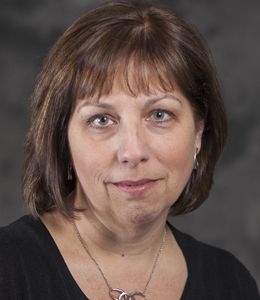
Mary T. Rourke, PhD
- Director of Institute for Graduate Clinical Psychology
- Associate Professor
- Psychology & Mental Health
Affiliated Programs
- Clinical Psychology (PsyD)
- Clinical Psychology & Criminal Justice (PsyD & MCJ Dual Degree)
- Clinical Psychology/Business (PsyD & MBA Dual Degree)
- Clinical Psychology/Health Care Management (PsyD & MBA Dual Degree)
- Clinical Psychology & Human Sexuality Studies (PsyD & MEd Dual Degree)
Education
- PhD, Clinical and Developmental Psychology (1998)
Bryn Mawr College (PA)
About Me
My teaching philosophy is anchored by the principles of adult learning. In the classroom, I aim to build a team of learners who feel connected to one another with a common educational goal. Through experiential exposure, dialogue, critical reflection, and peer mentoring, we create a learning experience that allows students to reorganize their understanding of academic material.
I aim to convey respect for students contributions and to create assignments that have direct relevance to students practicum work. I continually seek student input, and use formal and informal feedback to modify a course within the semester and from year to year.
Research Interests
My scholarship has been concentrated in the areas of pediatric and school psychology, with a focus on the clinical applications of research and the formulation of practice guidelines for health care and school professionals. Student dissertations under my mentorship have explored child and family adjustment to cancer and other major pediatric medical issues.
Recent publications have included chapters providing guidelines to medical care providers on meeting the psychological needs of children and families with severe illness, guidelines to school teams on meeting the needs of traumatized or maltreated students, and a formulation of the role of gender in cognitive assessment.
Publications
- Rourke, M.T. & Bartolini, E. (2016). A framework for considering gender in the cognitive assessment process. In V. Brabender & J. Mihura (eds.), Handbook of Gender and Sexuality in Psychological Assessment . NY: Routledge.
- Samson, K., Rourke, M.T., & Alderfer, M.A. (2016). A qualitative analysis of the impact of childhood cancer on the lives of siblings at school, in extracurricular activities, and with friends. Clinical Practice in Pediatric Psychology, 4(4), 362–372.
- Rourke, M. T., Samson, K. K. & Kazak, A. E. (2015). Psychological aspects of long-term survivorship. In C. Schwartz, W. Hobbie, L. Constine, & K. Ruccione (Eds.), Survivors of Childhood and Adolescent Cancer (3rd ed.). NY: Springer.
Professional Affiliations & Memberships
American Psychological Association (APA), National Association of School Psychologists (NASP), Pennsylvania Psychological Association (PPA), Delaware County Association of School Psychologists (DASP)
News
In the Media
- The Washington Post
How the Flint water crisis set schoolchildren back
- National Geographic Family
Throwing an eco-friendly New Year's Eve party
